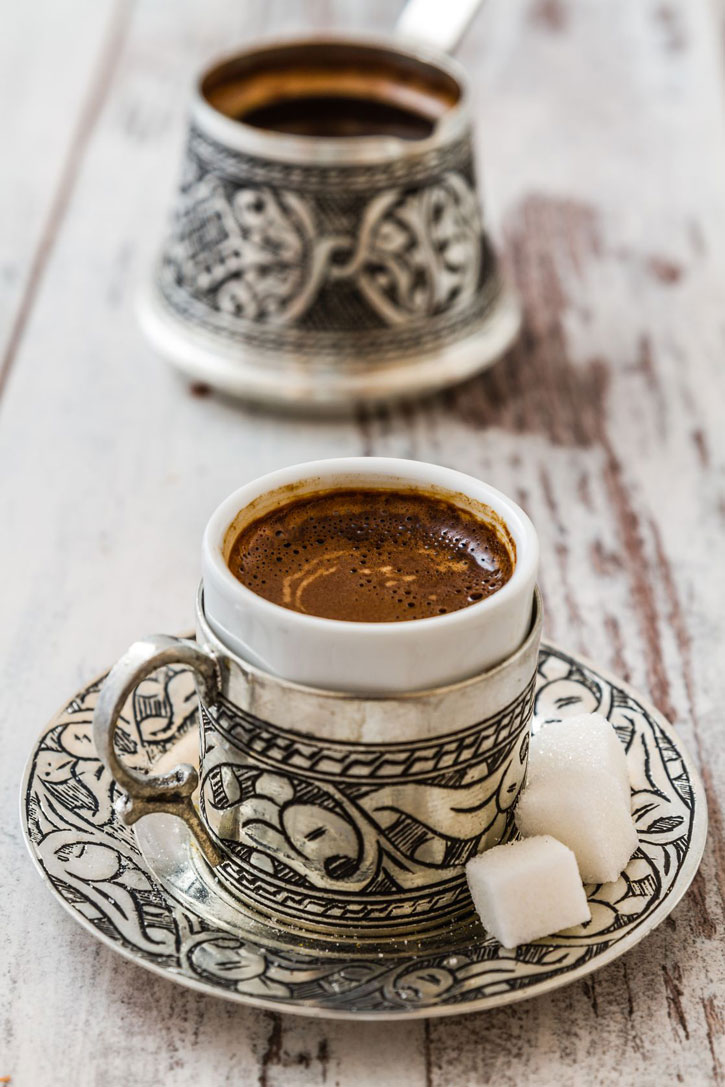Turkish Coffee: A Disappearing Institution
TIME : 2016/2/16 15:00:18
Turkish coffee, or
Türk kahvesi, is an art and ritual that is slowly entering the history books. Coffee culture actually got its start in the streets of Istanbul’s Tahtakale neighborhood around the mid-1500s. A couple of Syrians had brought coffee to Istanbul—the center of Islam at that time—and began serving it as a brewed beverage to mark an 11 o’clock coffee break enjoyed by the palace staff.
The quality of the brew depends on the grade of the coffee, its grind, and how long it is cooked over a low fire.A perfect Turkish coffee is served in a demitasse, with about three millimeters of froth. Any bubble appearing along the top of the beverage is considered a
nazar (bad omen), and popping it prior to drinking is a must. The quality of the brew depends on the grade of the coffee, its grind, and how long it is cooked over a low fire. It takes about one teaspoon of finely ground coffee mixed in with the amount of water that fills the cup. Together, the grounds and water are gently mixed inside a copper
cezve—a small rimmed, long-handled pot with a heavy flat bottom—and slowly brought to a boil. When served, the dregs settle at the bottom of the cup.

Traditional Turkish coffee. Photo © hsoken/123rf.
Ordering a shot of stovetop-made coffee is as simple as stating your sugar preference: sade (unsweetened), az şekerli (lightly sweetened), orta (normally sweetened), and şekerli (sweet). The liquid is best sipped, not gulped. If that first taste transforms you from a skeptic to a believer, recapturing that experience at home is as easy as purchasing coffee paraphernalia and grounds from the right purveyor. Line up at Kurukahveci Mehmet Efendi (Tahmiş Sk. 6, Eminönü, 0212/511-4262) just outside the main building of the Spice Bazaar in Istanbul to grab the necessary items.
Divining coffee grinds is also an art. Some cafés hire fortune-tellers who read the strains left by the wet grounds that have trickled down from the bottom of an inverted cup and come to rest on the saucer. Who knows? The key to your future might just rest on the bottom of that next cup of Turkish coffee. For coffee readings in English, head to one of the soothsaying outlets of Symbols Cafe. Their branch in Beyoğlu (Ayhan Işık Sk. 23, 0212/292-5354) is the closest for most in Istanbul, but book ahead to reserve an English-speaking reader.
Excerpted from the Second Edition of Moon Istanbul & the Turkish Coast.
